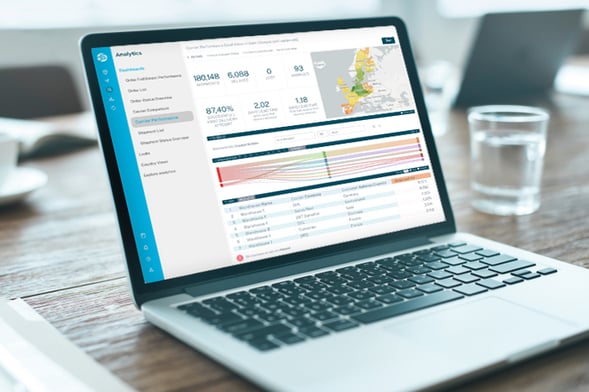Key Performance Indicators (KPIs) provide data insights into your supply chain, inventory demands, and shipping and delivery performance to analyze what’s working well and what isn’t.
Establishing logistics KPIs for data-driven decisions
The benefits of data-driven decision-making include the potential to improve business performance. Data allows teams to spot and fix potential problems before they start, providing information that enables companies to leverage successes to further growth.
Without data, the current market in e-commerce can be difficult to understand fully. Many online retailers are seeing simultaneous increases in sales and increased transportation costs. Expanding into new markets is also occurring when there is a slow-down in the global supply chain. Keeping an eye on all these factors is difficult without real-time data. Having logistics KPI data can accurately assess your true business performance.
How to establish the right logistic KPIs
The key to a good logistics KPI can be defined by SMART: Specific, Measurable, Attainable, Relevant, and Time-based. If you define performance metrics quantifiable in those five ways, you can establish benchmarks that help you see how each aspect of your business is performing currently and over time.
It’s important to define what you want to know to establish the right key performance indicators that provide the data insights you need. Avoid developing KPIs that don’t provide enough detailed or statistically relevant information - otherwise, you won’t be able to drill down the data deep enough to identify or fix problems. The right logistics KPIs provide real-time decision-making data, allowing for better forecasting and planning.
The benefits of tracking data in specifically defined, measurable areas are many. Perhaps most important is the ability to measure performance quickly, share the data with others in the organization, and adjust operations to improve metrics.

The 5 most important logistics KPIs to monitor
Supply and inventory KPIs
Ensuring your business has the right amount of product available to meet demand is key. Knowing when to restock or reorder is critical to meeting customer needs. The supply chain has slowed for some businesses, making it even more crucial to monitor on-hand or warehoused supply.
In addition, inventory may rely on inbound shipments. A logistics KPI that tracks time from order of stock to delivery to your business will help with adjustments in ordering time or analysis of alternative delivery methods. Monitoring the cost of goods is also important to ensure that prices are adjusted accordingly.
Transportation Logistics KPIs
Data specific to transportation is critical to e-commerce retailers. Knowing exactly how long the shipping process takes (from customer order through picking and packing to transfer to the carrier) can help with staffing or training issues. Monitoring transportation costs is also important. Calculating the transportation costs relative to specific products allows you to compare the cost of an item and the amount of revenue it generates.
Delivery time KPIs
Monitoring delivery time performance allows you to establish a benchmark for your optimal delivery time and to identify areas of optimization. Measuring the average delivery time from your warehouse to the end customer allows for more accurate customer communication regarding delivery expectations which makes for a better customer experience. It also helps improve your order picking accuracy rate, and reduce returns.
Labor Logistics KPIs
Labor costs are a part of every business and are essential to keep an eye on. Depending on its size and automation, an e-commerce business may have labor costs in sales, customer service, management, warehouse, shipping, etc. Knowing exactly how much it costs to sell a product means factoring in all the labor involved.
Financial Logistics KPIs
The financials associated with logistics also should be monitored. Those may include warehouse costs, the cost of packing materials or boxes, and administrative costs if independently dealing with multiple carriers or managing shipping contracts.
Data-based logistics optimization with Seven Senders
Connecting to the Seven Senders delivery platform gives you access to essential services like Analytics, featuring sophisticated dashboards offering a clear overview of important logistic KPIs. Make use of our pre-built supply chain dashboards to track your entire shipping performance of all carriers or create customized dashboards and reports tailored to your specific challenges. You can also set up automated order and shipment alerts to inform you of irregularities so you can quickly react and proactively control communication about delays. Find out more about how to take advantage of our data-based shipping optimizations.
